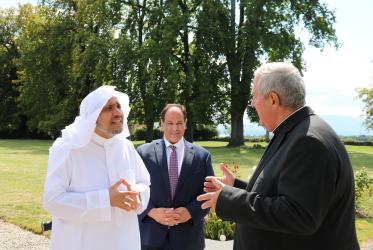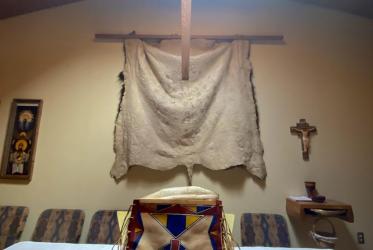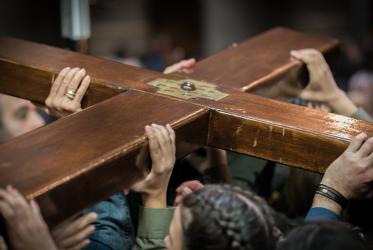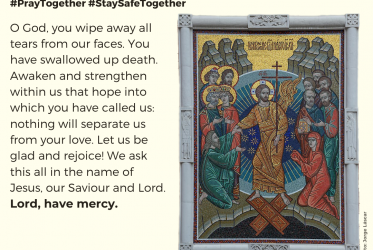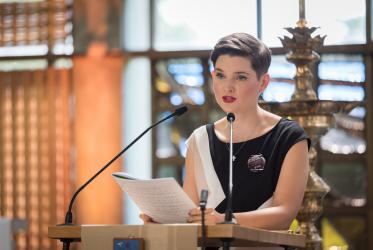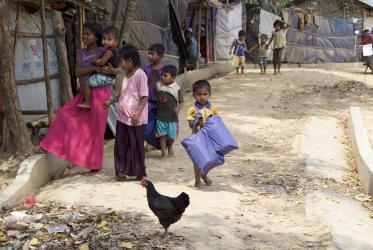Displaying 61 - 80 of 316
05 October 2021
How racism and colonialism are exacerbating impacts of climate change
29 September 2021
Morning Prayer for Tuesday, 6 April 2021
06 April 2021
Love and Witness
Proclaiming the Peace of the Lord Jesus Christ in a Religiously Plural World
18 January 2021
Rethinking Ecological Relationships in the Anthropocene era
11 - 13 February 2021
“From faith to action” conference will explore ways to protect children’s rights affected by migration
10 - 11 December 2020
Online
WCC stands behind “Statement on Faith in Action for Children”
26 November 2020




